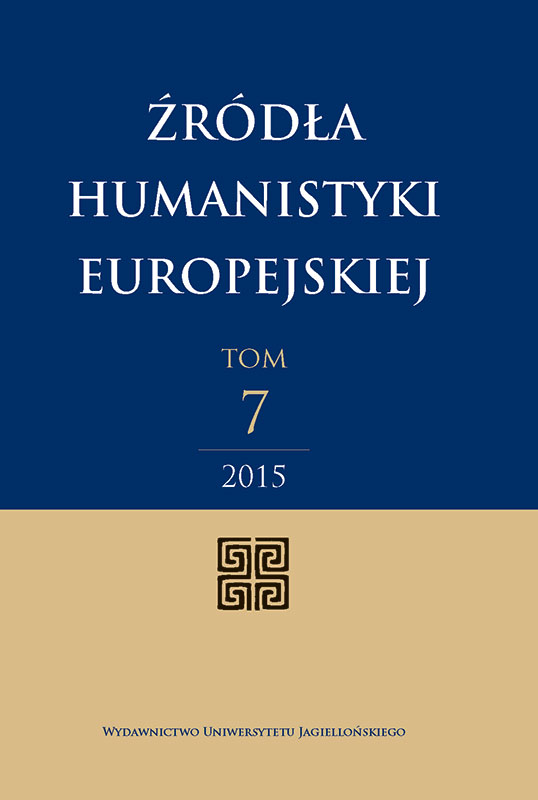Eros i Psyche. Mit opowiedziany na nowo
Eros and Psyche: The myth retold
Author(s): Edyta Szczurek-MaksymiukSubject(s): Studies of Literature, Ancient World, Comparative Study of Literature, Ancient Philosphy, Philosophy of Religion, Psychoanalysis, Sociology of Culture, Philology
Published by: Wydawnictwo Uniwersytetu Jagiellońskiego
Keywords: C.S. Lewis; Apuleius; reinterpretation; religion; allegory;
Summary/Abstract: Till we have faces: The myth retold is the last novel by C.S. Lewis, who was one of the greatest Christian writers in the twentieth century. The novel tells the story of Orual, daughter of king of Glome, which is a little barbarian country that lies behind the borders of the Hellenistic world. The story is based upon the myth of Cupid and Psyche. The first written version of this myth appears in the chapter of The golden ass by Apuleius. Lewis himself makes a statement in afterword of his book that he “felt quite free to go behind Apuleius”. Apuleius was rather a transmitter than inventor of the tale in Lewis’s opinion. As he says later “[Apuleius] in relation to my work he is a source, not an influence nor model”. Till we have faces is a re-telling of the myth of Cupid and Psyche from the point of view of Orual, Psyche’s ugly sister. I decided to point out differences and similarities in the telling of the tale of Cupid and Psyche by Apuleius and by Lewis. Generally the plot is the same. In both versions there are symbols easy to point out: Psyche as a Soul, Cupid as a Love, Venus-Ungit and also Redival as a Flesh and Orual as something between Psyche and her younger sister, Redival. There are some threads treated differently, as for example jealousy of gods and Psyche’s sisters. Psyche’s sisters in The golden ass are jealous of Psyche’s wealth, her palace and the fact that she is probably married to god. Therefore they decide to take her happiness away by deceiving her. In Till we have faces Orual is jealous of Psyche herself and her love. She thinks that gods have taken Psyche from her and therefore she writes accusation against them. The most important difference is that Orual cannot see Psyche’s palace. As Lewis says in his afterword: “The central alteration in my own version consists in making Psyche’s palace invisible to normal, mortal eyes – if making is not the wrong word for something which forced itself upon me, almost at my first reading of the story, as the way the thing must have been. This change of course brings with it a more ambivalent motive and a different character for my heroine and finally modifies the whole quality of the tale.” Despite differences both tales tell about a union with God. In Apuleius’ version Psyche, after her service for Venus, is united with Cupid. In the ending of Till we have faces Orual is united with Psyche and gods. Also both stories are about journey. In The golden ass there is a spirit journey to a union with god, which one can achieve through beauty. In Till we have faces there is no allegorical journey, but Orual makes her way to self-understanding by writing a book about her fight with gods. In the end she meets God face to face and gains peace.
Journal: Źródła humanistyki europejskiej. Iuvenilia Philologorum Cracoviensium
- Issue Year: 2014
- Issue No: 7
- Page Range: 27-42
- Page Count: 16
- Language: Polish

